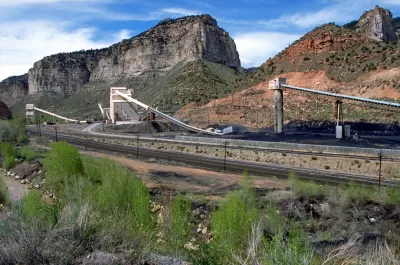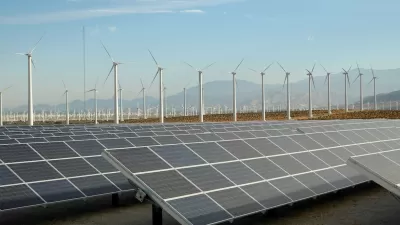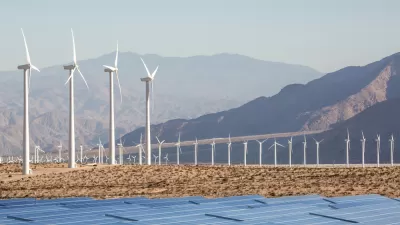President Trump still touts coal and its return, but what’s happening in the real world suggests coal is on its way out for good.

The revival of coal was a central part of President Trump’s campaign platform, but it is just not going to happen, says Jonathan Chait. "Trump’s idea was that, by allowing coal companies to emit more pollutants into the atmosphere, he would lower their operating costs enough that they could stay in business or, ideally, expand their market share."
Instead, the cost of wind and solar has dropped quickly and significantly, meaning coal cannot compete. In addition, coal plants are closing, the number of coal jobs has evened out, and projections show that production will continue to decline for the next 30 years until it is largely nonexistent.
Trump did not mention coal during the State of Union address earlier this month. He also seems to be grasping for straws generally. While he tweeted recently imploring the Tennessee Valley Authority not to close coal plants, the TVA board of directors voted to shut down two coal-fired power plants, saying the numbers do not pencil out. "People aren’t willing to pay higher electric bills for the privilege of dirtier air," notes Chait.
FULL STORY: Trump Has Lost His War on the War on Coal

Maui's Vacation Rental Debate Turns Ugly
Verbal attacks, misinformation campaigns and fistfights plague a high-stakes debate to convert thousands of vacation rentals into long-term housing.

Planetizen Federal Action Tracker
A weekly monitor of how Trump’s orders and actions are impacting planners and planning in America.

San Francisco Suspends Traffic Calming Amidst Record Deaths
Citing “a challenging fiscal landscape,” the city will cease the program on the heels of 42 traffic deaths, including 24 pedestrians.

Defunct Pittsburgh Power Plant to Become Residential Tower
A decommissioned steam heat plant will be redeveloped into almost 100 affordable housing units.

Trump Prompts Restructuring of Transportation Research Board in “Unprecedented Overreach”
The TRB has eliminated more than half of its committees including those focused on climate, equity, and cities.

Amtrak Rolls Out New Orleans to Alabama “Mardi Gras” Train
The new service will operate morning and evening departures between Mobile and New Orleans.
Urban Design for Planners 1: Software Tools
This six-course series explores essential urban design concepts using open source software and equips planners with the tools they need to participate fully in the urban design process.
Planning for Universal Design
Learn the tools for implementing Universal Design in planning regulations.
Heyer Gruel & Associates PA
JM Goldson LLC
Custer County Colorado
City of Camden Redevelopment Agency
City of Astoria
Transportation Research & Education Center (TREC) at Portland State University
Jefferson Parish Government
Camden Redevelopment Agency
City of Claremont





























